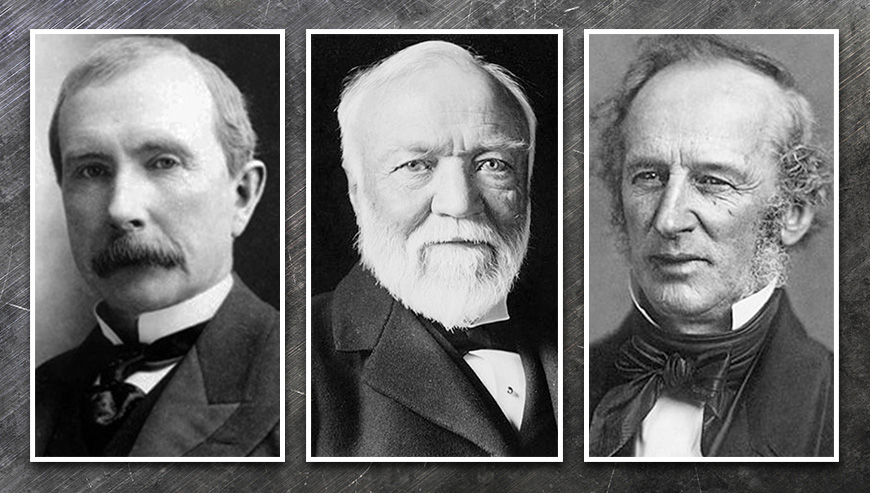TWS is a Great Training Option for Everyone
Learn more about how we can prepare you to advance your career.
Blue collar workers once took pride in their accomplishments, but for the last few decades, work in the trades has unfairly been deemed “beneath” white collar work. Former Dirty Jobs TV host Mike Rowe tells USA Today that Americans have done an extraordinary job of marginalizing blue collar work these last fifty years. As a result, many high school students pursue “traditional” four-year educations at state universities and private schools when their talents and interests lie elsewhere. 1 Despite numerous misconceptions, the blue collar career landscape is bursting with opportunities for economic growth and personal fulfillment and can be a great path for those who desire an alternative to four-year degrees and white-collar work.
Role of the Trades in America
America would not be the great nation it is today without the contributions of countless trade workers. Visionaries such as Cornelius Vanderbilt, Andrew Carnegie, John D. Rockefeller, and Henry Ford were the instrumental forces who built the trades into what they are today. Their visions were supported by the hard work of millions of talented and passionate blue collar workers, including plumbers, electricians, welders, and fabricators.

From the Empire State Building to the Hoover Dam, America’s trade workers are responsible for the symbolic structures that inspire us every day. They’ve also built and maintained the smaller, but equally important houses, schools, and businesses that make up the fabric of our society.
Have You Considered a Career in the Skilled Trades?
Fill out the form to recieve a no obligation info packet.
Current Skills Gap
Retiring workers in the United States workforce will be left with shortages in the skilled trades. Over 2.5 million trade positions are expected to open up in the next few years, accounting for 40 percent of the nation’s job growth. 2 Those who enroll in welding courses now are on their way to securing necessary certification and skilled trades jobs.
Job Opportunities in the Skilled Trades

Many careers in the skilled trades offer promising futures. HVAC is an especially notable area of growth; the U.S. Bureau of Labor Statistics (BLS) highlights a 14 percent job outlook between 2014 and 2024 for Heating, Air Conditioning, and Refrigeration Mechanics and Installers (49-9021). Among Plumbers, Pipefitters and Steamfitters (47-2152), the outlook is 12 percent.
Trade positions are both plentiful and profitable. The BLS reports a median annual wage of $50,620 for Plumbers, Pipefitters and Steamfitters and $51,880 for Electricians in 2015, compared to a median annual wage of $36,200 for all employees. 3 Typically, high school students looking at trade schools and colleges assume that graduates with four-year degrees will automatically earn more, but as Anthony Carnevale from Georgetown University’s Center on Education and the Workforce told NPR, averages can be misleading. By securing work in the trades, students can earn just as much (if not more) than their white-collar counterparts, all while enjoying a lesser student debt burden. 4
Consider What the Skilled Trades Have to Offer You
When you look around and see a building or live in a house with working HVAC and plumbing, skilled trades workers made that possible. Trade workers keep society functioning. Whether your chief career goals involve financial security, stability, or working with your hands, a career in the trades may be a great option. There are opportunities in many of the skilled trades, so now is the time to seek career training to start in your chosen field. Trade professionals earn a very respectable income while incurring minimal debt.

New: Industrial Maintenance
Learn About Our New Advanced Industrial Maintenance Program
Tulsa Welding School is proud to announce our newest program offering available at our Houston & Dallas Metro Campuses – Advanced Industrial Maintenance Technology! Learn the skills you need to take on the industries of manufacturing, distribution, energy production and facility maintenance in as few as 7 months.
1 – http://www.usatoday.com/story/money/business/2014/06/15/skilled-trades-employers-fight-dirty-jobs-stereotype/10528817/
2 – http://www.themanufacturinginstitute.org/~/media/827DBC76533942679A15EF7067A704CD.ashx/ page 5
3 – http://www.bls.gov/ooh/construction-and-extraction/electricians.htm
4 – http://ww.npr.org/2015/02/02/383335110/economists-say-millennials-should-consider-careers-in-trades
This blog has been labeled as archived as it may no longer contain the most up-to-date data. For a list of all current blog posts, please visit our blog homepage at https://www.tws.edu/blog/







